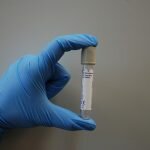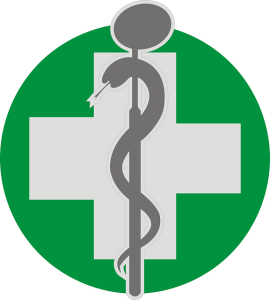Prevention of Breast Cancer
Cancer drug not only treats, but aids in prevention of breast cancer
For women at an increased risk of breast cancer, there’s a new method of prevention for the disease. A major study has found that the cancer treatment drug, known as Aromasin (exemestane), can reduce the risk of developing breast cancer by more than half, with less threatening side effects. Results of the study were recently published online by the New England Journal of Medicine.
Study Of New England Journal of Medicine
The analysis, led by Dr. Paul Goss of Massachusetts General Hospital, was the first to test the use of the new generation of hormone-blocking pills called aromatase inhibitors that are currently marketed under the the brand names Arimidex, Femara and Aromasin, as well as sold in generic form. The drug is already used to assist in the prevention of the recurrence of breast cancer among women who are post-menopausal, and as long suspected by doctors, it may now also be used effectively as a method for preventing initial occurences.
Until now, women at higher risk of breast cancer due to reasons such as gene mutations have had only two choices of preventative treatment that included tamoxifen and raloxifene. However, both drugs carry a slight risk of serious side effects including uterine cancer and blood clots among other medical conditions, making their use as a preventive measure unfavorable. Although prevention drugs are not advised for women who have an average risk of breast cancer, for those at increased risk for the development of the disease, having a third option for cancer prevention that may be safer is a positive step forward.
Study Details
The new study involved a total of 4,560 women from the U.S., Canada, Spain, and France. All of the women had at least one risk factor for breast cancer, such as a previous breast abnormality, a prior pre-invasive cancer, having an age of 60 or older, having a family history of the disease, or other risk factor for the disease.
For the study, the women were given daily doses of either Pfizer’s Aromasin, or a placebo. After approximately three years of treatment, only 11 cases of invasive breast cancer were diagnosed among the Aromasin group, compared to 32 cases among those taking placebo. These results were equivalent to a 65 percent reduction in risk for breast cancer among those women treated with the drug.
Among the study participants, serious conditions such as broken bones, high cholesterol and heart problems, were found to be similar for both groups of women, although a slightly higher percentage of those taking Aromasin experienced hot flashes, fatigue, sweating, insomnia and joint pain. While previous studies of aromatase inhibitors have revealed side effects including bone loss, vaginal dryness, difficulty having sex, and joint and muscle pain, only continued study will determine if these occur.
Goss estimates that a total of 26 women would need to take exemestane for at least five years in order to prevent one case of breast cancer, while previous studies have indicated that 96 women would need to take tamoxifen for five years to prevent a single case of the disease.
Goss pointed out, “This is a new option for prevention of invasive breast cancer for a wide pool of women,” without facing serious side effects of tamoxifen or raloxifene.
However, it remains to be seen how many women will take advantage of the preventive pill. Even though taking exemestane can cut the risk for breast cancer to about one percent, since the percentage of increased risk for development of the disease among these women is only between two and three percent over the next five years, many women may not opt for treatment with the drug. – Health News








